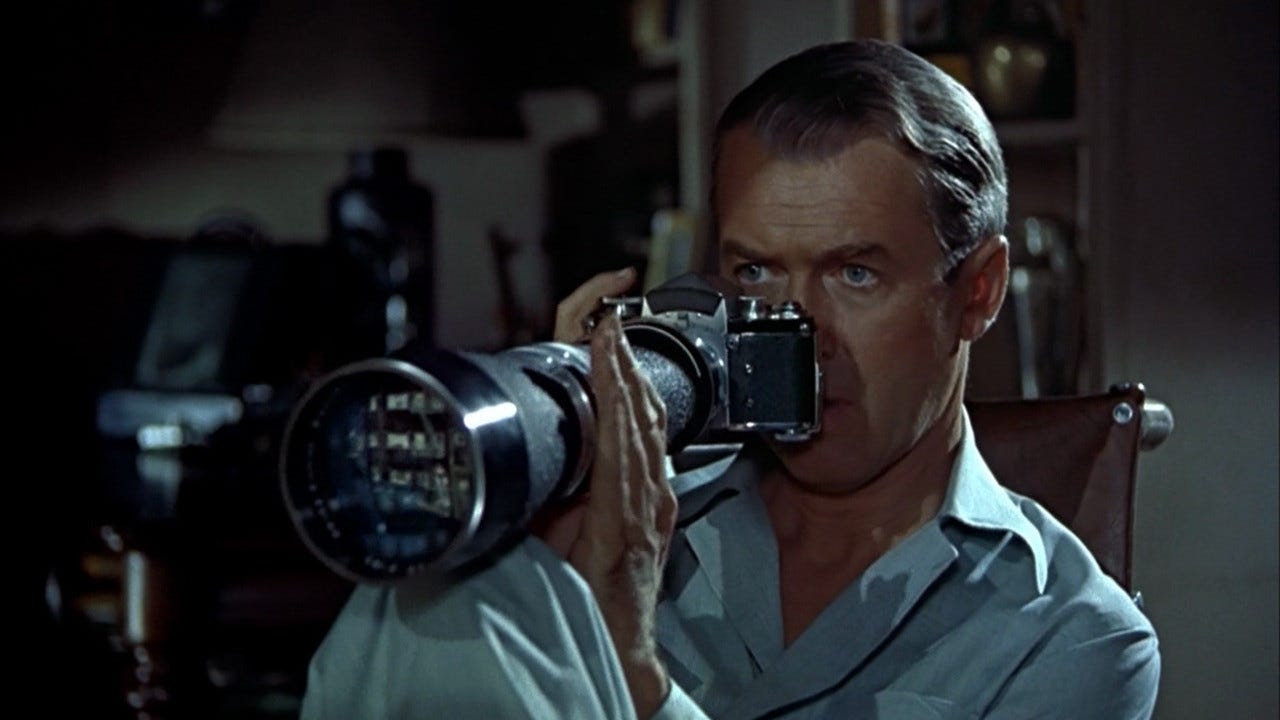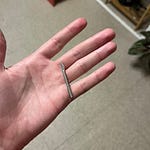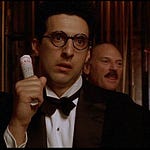In grad school1, my advisor was a mediocre homophobe who was occasionally good for solid writing advice. This was a decade ago. At 24, I was still an unthinking grinder, pestle to my own empty mortar, so it verged on the revelatory to hear a real writer—with books and a teaching job and everything—insist that sometimes the best thing you can do for your manuscript is sit at a sunny window and daydream.
Her enduring mid-ness aside, I’ve come to think my advisor was onto something. Over the years, I’ve discovered that the window is not just indispensable, but undeniable. The body needs time and space to process. When I force the painstaking, backbreaking effort needed to go sit by the window, I’m often rewarded with a passage that wouldn’t come or a plot hole finding its bite. Sometimes I can’t connect the window to any writing accomplishment, but its proximity makes me feel better. Unfortunately, restoration counts as one of its benefits, too.
My advisor had a lot of ideas, some of them about the legitimacy of trans people, but she failed to offer any suggestions for actually getting to the window. I had to figure that out myself. I believe in hard work, if only by virtue of its difficulty, which is a belief that leaves little room for reverie. When I feel myself resisting the window, a state of mind more daunting than eight hours in front of my laptop, I try to make it more palatable with a reframe: if doing nothing in front of a window is hard, then it counts as work, right? (And shouldn’t hard work be its own redundancy?).
It helps to enlist other writers, ones I actually respect, to strengthen my case for the window. “So much of making art is the time spent not making art,” Raven Leilani told BOMB Magazine a few years ago. Craft is earned with effort, but isn’t guaranteed, not least because the conditions of that effort are never a given. “To make anything,” Leilani went on, “you need the means and time, and you need to be intact, and that is frustrated by the racist, sexist, and capitalist forces that all contribute to your erasure. So to be able to make art is a privilege and a refusal of this erasure.” The window, then, is not just a gift, but a responsibility and a provocation.
This understanding of craft, then, requires work—a nonnegotiable for anyone who must draw a wage to survive—while also requiring its subversion. Craft becomes the workday’s byproduct, a silver lining wrung from the laborer along with the value that their labor produces. It’s also a powerful antidote to the contemporary push to literally separate art from the artist, an anti-worker project if I’ve ever heard one. Art, as Gretchen Felker-Martin wrote last year in a piece about moral panic as back door to censorship, is the culmination of “both labor and experience,” a stance with which any self-interested worker, artist or not, should wholeheartedly agree. (The window watches me, a taunting cyclops.)
Though what we do is usually described as intellectual or even white-collar, as writers we cannot fail to conceive of what we do as labor, even those moments between, when one sits by the window, chin cradled in palm. My soft-handed job is preferable to any I’ve ever had, but that doesn’t mean it’s not work, an uncomplicated position that seems—with the past week’s “Are baristas proletarians?” coursing through Twitter like Taco Bell through a Millennial’s colon—to nevertheless be controversial.
Divisive, anti-worker propaganda aside, sure, the notion that we do as writers—artístes—is not actually work can be so very tempting. Such a possibility frees us from having to think about the ways in which our embodiment complicates our politics, our experience, and our identity, and thus our art. “The body can seem like a problem, but it can also bring us together,” counters T Fleischmann. With their book, Time is the thing a body moves through, Fleischmann seeks to “push against some forms of knowledge” by working/engaging with visual artist Felix Gonzalez-Torres without having something “definitive” to say about him. Gesturing, flirting, suggesting, winking, nodding, cruising, and fantasizing, Fleischmann wants to meet the body on its own terms, resisting certainty as both form and praxis. (What does the window know that it can teach me?)
And yet work, as a straightforward, quantifiable exchange—x hours in, y words (dollars/clicks/books) out—remains seductive. “The form demands discipline, and through that discipline, urgency,” says Leilani. In that urgency there is purpose and, supposedly, a reward; a pot of gold tantalizes at the end of the rainbow. Though I’m fundamentally repulsed by his prioritizing of style and structure over “the great idea” (which he called “hogwash”), my dear Nabokov’s dedication to component can be read as another kind of subversion. “Caress the details, the divine details!” he urged, which dictum we can reappropriate for our anti-work perspective: what is work if not effort with a capitalist agenda, rendering pleasure incidental? Indeed, in his rebuke of Nabokov’s whole deal, Updike invokes the writer’s essential dialectical tension: we dash our inherent “will to manipulate” (hi, liar!) against the “banal, heavily actual subject.” How romantic. Like an open window on an autumn afternoon, chilly Brooklyn below inching past on its Saturday errands.
I prefer to view my work as a writer as being in service of my political commitments and, failing that, my own pleasure. It’s a lot of pressure. Reducing art to work can be freeing, if not liberating. It’s something that working people do, this craft of mine. Decent, salt-of-the-earth, but moral only insofar as it’s constitutionally bracing, like a loaf of home-baked bread. Or a window that, I just noticed, needs Windexing. This reduction plays into the pleasure I take in artists who conceive of themselves as tradespeople, or even better, as workmen, as Jack Nicholson calls himself in a 1986 interview with Rolling Stone. “My first acting teacher said all art is one thing—a stimulating point of departure. That’s it. And if you can do that in a piece, you’ve fulfilled your cultural, sociological obligation as a workman.” Workman. Ah. Bracing, honest. Puts hair on your chest.
Of course, this pleasure is a fetish of sorts, relying on fantasies of what work is, does, and feels like. In opposition to an increasingly always-on office environment, or scraping together a living from the gig economy, or clinging to what remains of the twentieth-century’s union gains, the notion of clocking in and out at a satisfying, decently compensated 40-hour-per-week job (don’t forget the pension!) is such a fantastic fantasy that one might forget altogether that even if it were attainable to you (it almost certainly isn’t), that attainability relies on the exploitation of workers of which you can only imagine. (Do those workers, either alienated within the imperial core or conscripted into its replication outside its borders, have a window?)
Now it’s dark, and my window has lost some of its potency, though if I crane my head, I can see the ghostly Manhattan skyline through the trees and condos. In writing about the window, I’ve failed it. My book is still not done.
Find me on Twitter. Get my second novel, X, right here.
Subscribe to support GOOD ADVICE/BAD GAY, DAVID’s advice series from an anonymous gay therapist who’s not afraid to hurt your feelings with the truth. (Sample an unlocked post for a taste of what you’re missing.) 100% of funds go to support a rotating selection of mutual aid and reparations projects.
Want advice? Email badgayadvice@gmail.com for a free 3-month subscription.
A phrase I only rarely let loose from its rubious attic chains. Please don’t ask me about it.












